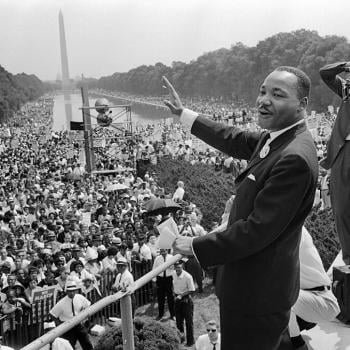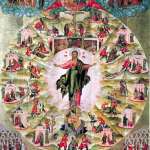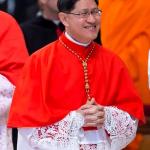
It is easy for many to believe that all theological engagement, especially systemic theology, when done right, will produce purely objective results. The reality, however, is that this is never true. There is always a subjective element in all theological work. Even the authors of the texts found in Christian Scripture, while inspired, wrote in and through their own subjective voice (which accounts for why many events are described differently by different authors). If this is true for those divinely inspired to write Christian Scripture, then it will be impossible to discount the subjective role involved in all theological work. Thus, while there should be an interest in exploring and engaging universal, objective truths through systematic theology, we must remember everyone who engages it will bring elements of themselves into their conclusions:
Every systematic theology is a contextual theology, even if it does not claim or recognize its own sociocultural, political, and historical limitations. This does not promote relativism. However, in todays’ academic landscape the ability for any voice to speak in a detached, ahistorical, and universal manner has been severely (and thankfully) challenged. [1]
God is infinitely beyond all comprehension, which is why there exists a great variety of ways for the truth of God to be apprehended. Each person who comes in contact with God in some fashion does so in and through their own particular context, and it is through that context they not only apprehend some element of the absolute truth, but understand what they apprehend. This is not a bad thing. Indeed, it is a good thing. Each human person, each culture, each society has their own unique engagement with God, their own apprehensions which they can and should share with others, allowing humanity’s awareness of the truth of God to grow through their communal engagement with God. The problem, historically, is that some (mostly powerful, elite men), tend to have taken control of the theological narrative, and in doing so, limited the way theology has been engaged. They have kept out much of what they could and should have taken into consideration. Historically, much of what could have and should have been gained from other socio-political contexts has been lost, as they have not been preserved for us to know them. This means, the tradition which has been handed down to us has been severely limited, requiring us to take into consideration what has been lost and try to bring it back into the tradition today. It is imperative that theologians from a wide range of contexts and experience work together, not only to complement each other, but to help correct and refine each other, as people from different contexts will find it easier to deal with some issues or theological concerns than others. To be sure, in saying this, we must not forget that there is an objective dimension in theology, that is, revelation from God. This objectivity is what allows for the diversity of thought to come together, but in saying this, we must also not forget that the objective dimension tends to be interpreted subjectively, that the context of each person will influence the way that objective element is not only understood, but explained to others.
Theology is not meant to be static. What has been handed down is to be examined, to see what elements of it comes from and reflects and properly points to the objective, absolute truth, and what elements reflect the subjective engagement of that truth, and with it, what elements of theological discourse need to be refined or purged. Cultural assumptions often prove to be wrong, and when they are, those theological reflections which are based upon such assumptions must be re-examined and changed. Doctrinal development has consistently done this, which is why we see in the modern age, assumptions based upon racism and sexism, or those based upon cultural norms which have proven not to be as standard as once believed, have slowly been examined, and taken out of the theological narrative. Those who engage theology must be willing to learn from the past, but they must not be held to the standards or errors of the past; they must be willing to take risks, engaging new insights, but they must do so with humility, willing to point out the context from which they come and the potential need for others to add to or correct what they have to say. “Theology must risk the absurd in order to do justice to faith.”[2]
Those interested in theology must be willing to explore and engage theologians form a wide variety of contexts, both ancient and modern, so they can gain those insights which come from those contexts. They must understand, moreover, their own context, and how it influences their work. Indeed, as Fr. George Maloney explained, their own apprehension or experience of the truth will always transcend the way the truth is dogmatized:
Dogmatic, speculative theology can give us distinctions between substance and accidents and work out for us a theory of transubstantiation. It is, however, only in the immediate experience of celebrating the Eucharist and in receiving the Bread of Life that we come into a resolution of the antinomies of how eternity and time can meet, how Divinity can be joined with humanity, how Jesus Christ is both true God and true man eternally in glory and yet always coming into our lives to touch our human bodies with His glorious Body and Blood. Here we experience how we are Church, many members and yet each member uniquely loved by God, waiting for the full eschaton to come and yet in the Eucharist it has begun.[3]
All forms of theology should be understood as having a contextual component to it, one which relies upon the experience of the theologian. The theologian who is aware of this will be able to do their work better than the one who is not. The one who is aware of this will also be able to better read and engage traditional theology and the dogmatics which have been handed down throughout Christian history. And, as this is the case, it is important to have theologians coming from a variety of contexts, that is, theologians to be men and women, coming from all around the world, and from all kinds of social contexts. We must not limit theology and its outcome in the way it was limited in the past, where it was mostly the elite who engaged it, with elite men, more than anyone else, having the greatest influence in the developing theological narrative; yes, there were some women, and some who were poor or from the underclass, who sometimes can be seen as having an influence in the theological narrative, but they were the exceptions to the rule, exceptions which give us only a small glimpse of what we have lost. We have lost quite a bit of what the poor, what marginalized, women and men of the past could have told us, but today, being aware of the value of those coming from such contexts, we can hopefully make sure we engage them, letting them have their say, finding a way to incorporate them in the greater tradition, so that the theologians of the future will have much more to work with as they engage the needs of their day and age.
[1] Michelle A. Gonzalez, Created in God’s Image: An Introduction To Feminist Theological Anthropology (Maryknoll, NY: Orbis Books, 2007), xiii.
[2] Stephen H. Webb, On God and Dogs (Oxford: Oxford University Press, 1998), 11.
[3] George Maloney, SJ, God’s Exploding Love (New York: Alba House. 1987), 61.
Stay in touch! Like A Little Bit of Nothing on Facebook.
If you liked what you read, please consider sharing it with your friends and family!
N.B.: While I read comments to moderate them, I rarely respond to them. If I don’t respond to your comment directly, don’t assume I am unthankful for it. I appreciate it. But I want readers to feel free to ask questions, and hopefully, dialogue with each other. I have shared what I wanted to say, though some responses will get a brief reply by me, or, if I find it interesting and something I can engage fully, as the foundation for another post. I have had many posts inspired or improved upon thanks to my readers.

















